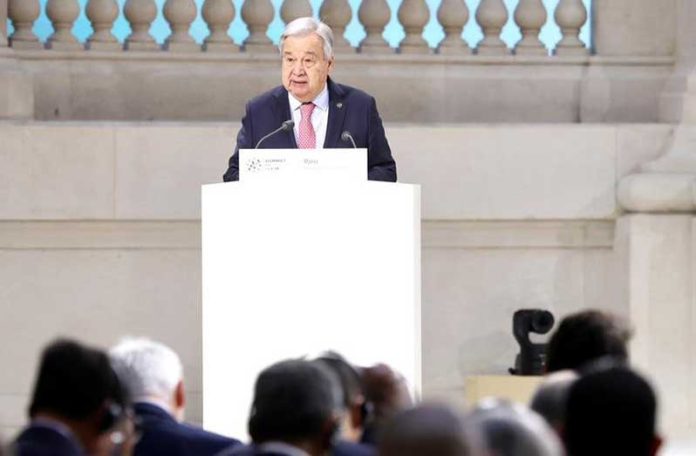AI is reshaping our world, but its immense potential is concentrated “in the hands of a few,” cautioned UN Secretary-General António Guterres during his address in Paris on Tuesday. He urged nations to collaborate on this groundbreaking technology to “bridge the gap between developed and developing countries – not widen it.” Speaking at the AI Action Summit in the opulent Grand Palais museum, Guterres highlighted the dangers of increased AI capability concentration, which could exacerbate geopolitical divides. He emphasized the urgent need for “global guardrails” and the sharing of best practices to promote solidarity, equitable policies, and fair business practices.
With an audience that included national leaders, tech CEOs, and even musician Pharrell Williams, Guterres also called for the implementation of clean energy solutions. He pointed out that AI data centers are already exerting an “unsustainable strain” on the environment. “It is crucial to design AI algorithms and infrastructures that consume less energy and integrate AI into smart grids to optimize power use,” he stated. He stressed that AI must operate on sustainable energy to contribute to a more sustainable future, aligning with the universally accepted Sustainable Development Goals (SDGs) and not “entrenching inequalities.”
At the summit, Pharrell Williams addressed concerns regarding AI potentially rendering humans obsolete or leading to job losses. “There’s just too much fear around it,” he remarked, asserting that AI would not replace human creativity. He recalled the apprehensions surrounding the turn of the millennium, noting, “we survived that.”
Vice-President JD Vance, representing the United States, announced plans for a $450 billion investment in the AI sector but warned against overly restrictive regulations. “Excessive regulation of the AI sector could kill a transformative industry as it’s taking off,” he cautioned.
Choi-Soo-yeon, head of the South Korean AI company Naver, shared insights into the evolution of AI, emphasizing that consumers today seek “not websites, but information” tailored to their needs. “By understanding users’ underlying intent and context, AI will recommend products that users genuinely want,” she explained, envisioning a commerce platform that connects diverse tastes and personalities.
Guterres underscored the UN’s commitment to ensuring that no one is left behind in the wake of this technological advancement. He referenced the Global Digital Compact on AI governance, which member states agreed upon in September of the previous year. This Compact aims to unite the world around a shared vision where technology serves humanity. He called for support for the establishment of an Independent International Scientific Panel on AI and the creation of a Global Dialogue on AI Governance that includes all UN Member States. This dialogue would help align global governance efforts, uphold human rights in AI applications, and prevent misuse, thereby avoiding a divide between AI “haves” and “have-nots.”
Addressing the energy demands of AI, Fatih Birol, Executive Director of the International Energy Agency (IEA), confirmed that data centers and related AI infrastructure are already influencing electricity demand trends. “There is no AI without energy,” he stated, noting the imminent construction of “thousands” of new data centers. He emphasized the need for governments to find sustainable and affordable electricity solutions.


